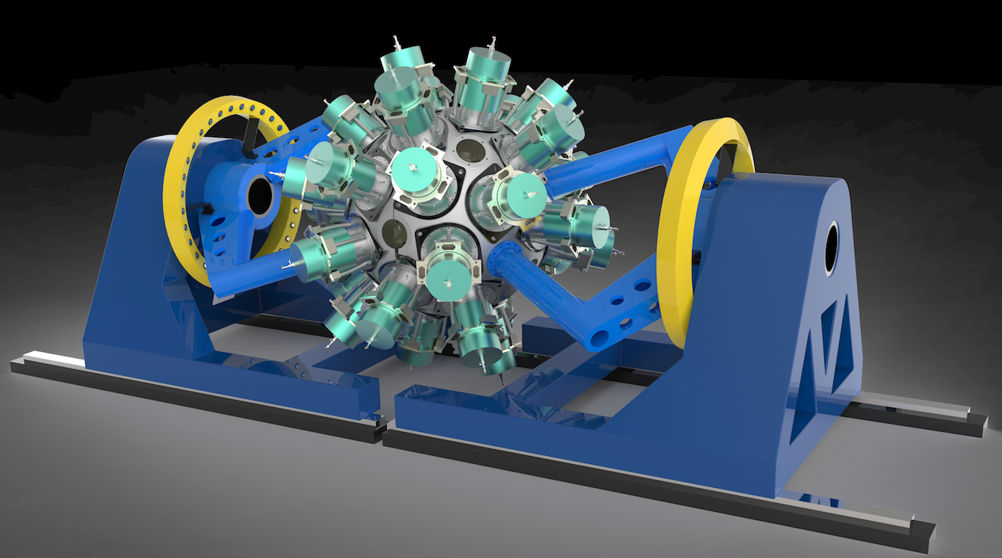Known as FAUST, the project will create detection equipment for GRETA (Gamma-Ray Tracking Array), a high-resolution sensing platform at the University of Michigan’s $730m Facility for Rare Isotope Beams (FRIB).
GRETA is designed to reveal new details about the structure and inner workings of atomic nuclei, and to elevate our understanding of matter and the stellar creation of elements.
Related content
Scientists at FRIB will smash beams of speedy rare isotopes into various forms of plastic targets. GRETA will allow them to measure the emerging charged particles that are produced, shedding light on the origins of a range of elements from gold to oxygen. The particles will be measured by a combination of silicon detectors supplied by West Sussex-based Micron Semiconductor Ltd and caesium iodide crystals developed at York University.
“Slowing down particles that are moving close to the speed of light is certainly a challenge,” said Professor Gavin Lotay, Research Excellence Framework lead for Physics at Surrey’s School of Mathematics and Physics. “But with our partners, we’re confident in building equipment that is fit for the task. The findings could one day help us unlock the mysteries of how reactions at the heart of stars create the elements that make up everything on earth and across the galaxies.
“It’s amazing to think that reactions involving tiny nuclei, invisible to the naked eye, determine how a star explodes.”

The GRETA detector array is designed to surround samples, forming a spherical shell to more accurately measure the energy and 3D position of gamma rays propagating in the detectors. The device is due to be completed in 2028.
“We’re excited to welcome FAUST and the associated research to FRIB,” said Dr Alexandra Gade, FRIB scientific director and Professor of Physics at Michigan State University.
“This international collaboration will answer fundamental questions about the evolution of the universe and the nature of the nuclear force – and we very much look forward to this partnership.”











Emergency law passed to protect UK steelmaking
There is an old legal adage ´hard cases make bad law´ and it seems to apply to this draconian legislation, which gives sweeping powers to the...